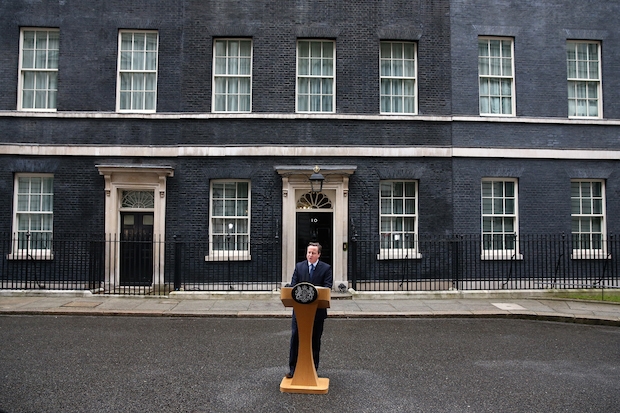Last night in Brussels I set out Britain’s new settlement with the European Union. This morning I’ve just chaired a meeting with the Cabinet in which I updated them on the special status we have secured for Britain. And the Cabinet agreed that the government’s position will be to recommend that Britain remains in a reformed European Union. Now I want to speak directly to the British people to explain why.
We are approaching one of the biggest decisions this country will face in our lifetimes: whether to remain in a reformed European Union, or to leave. The choice goes to the heart of the kind of country we want to be, and the future that we want for our children.
This is about how we trade with neighbouring countries to create jobs, prosperity and financial security for our families. And it’s about how we cooperate to keep our people safe and our country strong.
I know there will be many passionate arguments over the months ahead, and individual Cabinet ministers will have the freedom to campaign, in a personal capacity, as they wish. But my responsibility as Prime Minister is to speak plainly about what I believe is right for our country. I do not love Brussels: I love Britain. I’m the first to say that there are many ways in which Europe needs to improve, and the task of reforming Europe does not end with yesterday’s agreement. And I will never say that our country couldn’t survive outside Europe. We are Great Britain – and we can achieve great things.
That is not the question in this referendum. The question is: will we be safer, stronger and better off working in a reformed Europe, or out on our own? I believe we’ll be safer in a reformed Europe because we can work with our European partners to fight crime and terrorism. I believe Britain will be stronger in a reformed Europe because we can play a leading role in one of the world’s largest organisations from within, helping to make the big decisions on trade and security that determine our future. And I believe we’ll be better off in a reformed Europe. Because British businesses will have full access to the free trade single market, bringing jobs, investment and lower prices. Let me be clear: leaving Europe would threaten our economic and our national security.
Those who want to leave Europe cannot tell you if British businesses would be able to access Europe’s free trade single market, or if working people’s jobs are safe, or if prices would rise. All they’re offering is risk at a time of uncertainty, a leap in the dark.
Our plan for Europe gives us the best of both worlds. It underlines our special status, through which families across Britain get all the benefits of being in the European Union, including more jobs, lower prices and greater security. But our special status also means we’re out of those parts of Europe that do not work for us. So we’ll never join the euro, we will never be part of eurozone bailouts, never be part of the passport free no borders area, or a European army an EU super-state.
Three years ago I committed to the British people that I would renegotiate our position in the European Union and hold an in-out referendum. Now I am delivering that commitment. You will decide, and whatever your decision, I will do my best to deliver it.
On Monday I will commence the process set out under our Referendum Act, and I will go to parliament and propose that the British people decide our future in Europe through an in-out referendum on Thursday 23rd June.
The choice is in your hands. But my recommendation is clear.
I believe that Britain will be safer, stronger and better off by remaining in a reformed European Union.







Comments